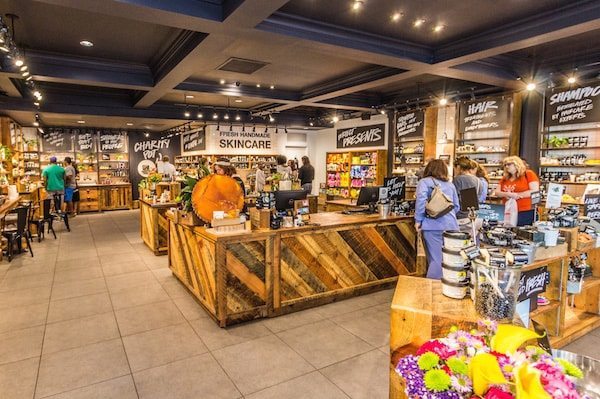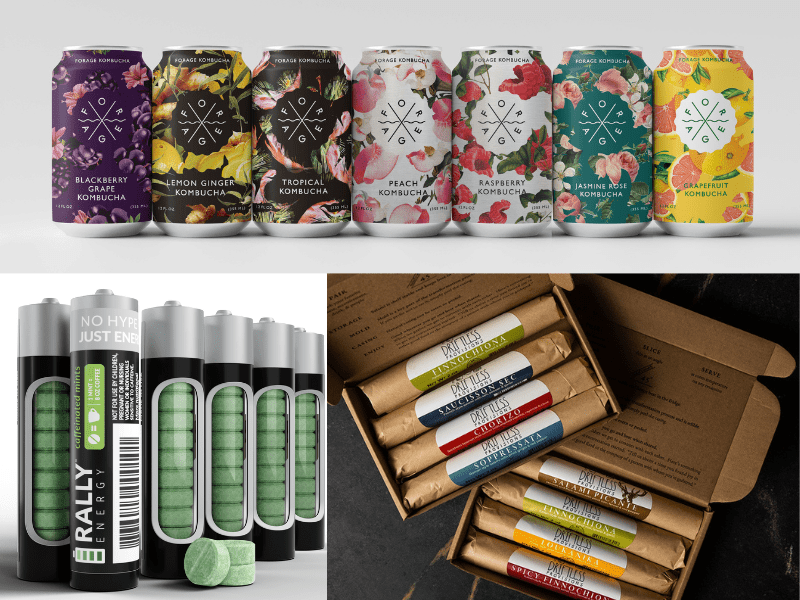When one thinks of the path to opening a business, it can sound fairly straightforward – a plan is devised, which is then used to acquire financing, and off you go! Of course, it’s rarely this simple, and especially for farmers seeking to branch out into the world of Value-Added products, the road to obtaining financing must first be paved with good relationships.
A great place to start the discovery process is with a local bank with which you or your family have a history, matching up with a knowledgeable loan officer or business banker who understands your business pursuits. If your hometown bank doesn’t have expertise in your industry, it’s okay to interview other banks that do. Then, discuss loan product options. Standard installment loans with monthly payments are not the only kind of loans out there and may not be the best fit for a company that is still pre-revenue. Ask about alternate loan structures with payments timed to sync with your cash flows or have an interest-only period upfront while ramping up your business.
If appropriate, discuss lines of credit, which have more flexible terms that can more closely meet the needs of a startup business or newly-added enterprise. It is common for farmers with annual crops to access an operating line of credit for items such as fertilizer, seed, and insecticide at the beginning of a season, which then gets paid down after harvest. Farmers with livestock inventories that are constantly shifting up and down may have a variable line of credit based on current inventory value, called a borrowing base. This kind of flexibility can translate into credit facilities for retail or value-added processing as well.
An entrepreneur might access a straight line of credit with a fixed dollar amount ceiling, which allows them to make multiple advances during a project, such as renovating a storefront. Once the project is complete, the balance is converted to a mortgage or other term loan. Or, an entrepreneur might consider a revolving line of credit for operations, such as acquiring inventory or paying for labor, especially early on while sales are still growing.
Hill Valley Dairy recently expanded its business beyond wholesale and farmers markets, into its very own brick-and-mortar storefront. This took planning, relationship building, and the right opportunity to come together.
While living in Lake Geneva, WI for several years, Ron and Josie Henningfeld built relationships with local businesses that would ultimately partner with them in selling their cheeses. It was also during this time when Ron began working for a creamery that would eventually provide Hill Valley Dairy with rental space to launch cheese production operations. By starting small, making only 50lbs of cheese a week, and renting infrastructure to preserve cash, they were able to self-finance their growing business. After several years, they had expanded their operation to 500lbs of cheese a week, began producing award-winning aged cheeses, and moved closer to the family farm in East Troy, WI where they source their milk.
It was at this point when the Henningfelds sat down with a banker for the first time to establish a relationship and start planning the financing for the future of their business. They decided to open a retail cheese shop and then a cheese bar at two adjoining storefronts in Lake Geneva. They were met with understanding and flexibility from their banker and using a combination of business and personal equity for security, initiated a line of credit for the startup costs of opening their shop. These funds were used to finance updates to the space, equipment, and early operating costs such as labor and inventory.
Ron’s advice – don’t go at growing your business alone; build relationships with experts who can answer your questions (instead of you doing all the research and fundraising). This speeds up and improves business decision-making and sets the stage for success.
Ron Henningfeld began experimenting with cheesemaking in college, with a dream to make value-added cheese products using milk from the family farm. Now he and his wife Josie have built Hill Valley Dairy by fostering relationships with local businesses and bankers and making world-award-winning cheeses. Learn how they grew their business from curds to cave-aged and farmers market to storefront.
And now, our roundup of the best food and beverage finance news, events and resources from around the web…

Business Model Insights
- Pandemic Lessons and Future-Proofing Your Business (Food Industry Executive)
- Financial consultant shares key takeaways from the recent upheaval and the most important investments food companies can make right now to become more resilient.
- Q&A: HowGood exec on linking regenerative farming to food industry impact (AgFunder News)
- Small candy makers forced to rethink their business strategies (Food Dive)

Raising Capital
- Five Things to Consider When Seeking Credit for Your Manufacturing Business (Food Manufacturing)
- With the economy open for business and efforts to increase domestic manufacturing, there are ample opportunities for growth and expansion.
- Meat and dairy investors say climate inaction threatens their finances: study (Food Dive)
- Lessons for Building Natural Capital at Scale Across the Globe (Regenerative Food Systems Investment News)

CPG/National Brands
- More than dance videos: TikTok’s ‘robust,’ quick-tailoring content & DIY-aesthetic offers brands broad reach on shoestring budget (FoodNavigator-USA)
- When used strategically, the viral video-sharing app can be a powerful marketing tool that won’t break the bank.
- Break into Whole Foods: Tips from Little Secrets CEO Vandervoet (New Hope Network)
- Convenience stores get customers’ attention when it comes to food (Supermarket News)

Market Trends
- Upcycling Gains Traction as Key Sustainability Initiative (The Food Institute)
- With consumers consistently ranking sustainability as a top motivator for food choices, products incorporating upcycled ingredients have exploded by 122% (CAGR) over the last five years.
- Consumers prioritize sugar content over sweetener type (Nutritional Outlook)
- Wheat and dairy punctuate 12.2% spike in food prices in the last year (Food Dive)

Farming and AgTech
- From Farmland to Frac Sand (Civil Eats)
- In the Midwest, fertile soil is being excavated in pursuit of fossil fuels while communities suffer.
- Soaring fertilizer prices are an opportunity for more sustainable farming (GreenBiz)
- Rising input costs keep tight lid on milk production growth (Wisconsin State Farmer)

Deals/M&A
- Milk Moovement funding round generates $20 million (Dairy Processing)
- Cloud-based platform creates supply chain visibility for dairy farmers and distribution partners to optimize delivery schedules for perishables, thereby decreasing food waste and lost profits.
- Snacktivist Foods Raises $515k in Seed Funding (Regenerative Food Systems Investment News)
- Flowers Foods snags stake in Base Culture (Food Business News)

Industry Events
Virtual events:
- WWBIC/FaB Wisconsin Training Session: Specialty Foods: Get Your Product on a Shelf: 9/19
- Edible-Alpha® Immersion Training: Managing Uncertainty: Scenario Planning: 9/19–9/29
- WWBIC/FaB Wisconsin Training Session: Food Halls and Markets: 9/26
- FFI October Quarterly Trends Talk: 10/10
- Edible-Alpha® Immersion Training: Farm Financial Management Bootcamp: 11/15
In-person events:
- Soil Health Academy School Regenerative Farming and Ranching: 7/18–7/20 in Redwood Falls, MN
- American Cheese Society Annual Conference: 7/20–7/23 in Portland, OR
- MOSES Organic Field Day: Crop Rotations on Large-Scale Organic Farm: 7/21 in Madison, SD
- Rodale Institute Organic Field Day: 7/22 in Kutztown, PA
- Digital Food & Beverage: 7/25–7/26 in Austin, TX
- Chicken Marketing Summit: 7/25–7/27 in Braselton, GA
- International Fresh Produce Association The Foodservice Conference: 7/28–7/29 in Monterey, CA
- Minnesota Farmfest: 8/2–8/4 in Redwood County, MN
- Soil Health Academy School: Increasing Profitability of Corn & Soybean Farms Through Diversity: 8/9–8/11 in Waverly, KS
- Dakotafest: 8/1–8/18 in Mitchell, SD
- National Pizza & Pasta Show: 8/23–8/25 in Rosemont, IL
- Farm Progress Show: 8/30–9/1 in Boone, IA
- Soil Health Academy School: Increased Profits Through Stacked Enterprises & Direct Marketing: 8/30–9/1 in Bismarck, ND
- Food Automation and Manufacturing Symposium and Expo: 9/11–9/14 in Miami, FL
- Americas Food & Beverage Show: 9/12–9/13 in Miami, FL
- Midwest Mechanical Weed Control Field Day: 9/14 in Benton Harbor, MI
- International Baking Industry Exposition: 9/17–9/21 in Las Vegas, NV
- Soil Health Academy School: Transformational Dairying: 9/26–9/28 in Kinzers, PA
- Natural Products Expo East: 9/28–10/1 in Philadelphia, PA
- World Dairy Expo: 10/2–10/7 in Madison, WI
- Regenerative Food Systems Investment Forum: 10/12–10/13


